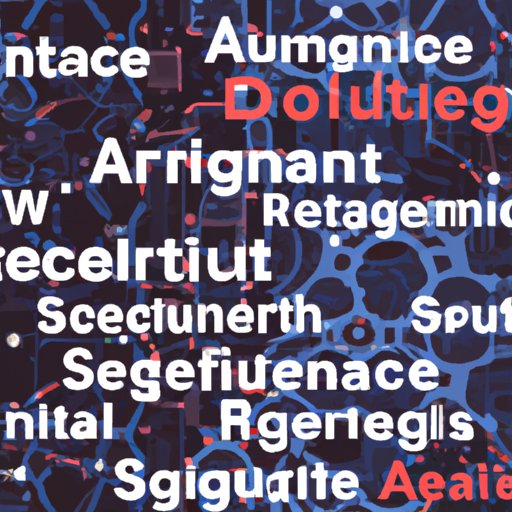Introduction
Artificial intelligence (AI) is a rapidly advancing field that has the potential to revolutionize many aspects of our lives. But as with any new technology, there are potential risks associated with it that need to be addressed. This article will explore why AI should be regulated, looking at current ethical and legal considerations surrounding AI, how regulation can help protect consumer data, the need for accountability when it comes to AI decision-making, and the potential benefits of regulating AI.

Current Ethical and Legal Considerations Surrounding AI
As AI continues to become more embedded in our lives, there are important ethical and legal considerations that must be taken into account. One of the key issues is privacy. AI algorithms have the potential to collect and analyze vast quantities of personal data, which raises questions about how this data is stored, used, and shared. There are also questions about who is responsible for decisions made by autonomous AI systems, and how these decisions can be held accountable.
Data security is another major concern when it comes to AI. As AI algorithms become increasingly sophisticated, they have the potential to be used for malicious purposes, such as hacking or identity theft. It is essential that measures are put in place to ensure the security of sensitive data.
How Regulation Can Help Protect Consumer Data
One of the ways in which AI can be regulated is by establishing standards of data protection. This would involve putting in place measures to ensure that personal data collected by AI algorithms is handled responsibly and securely. This could include requiring companies to obtain consent from users before collecting their data, and ensuring that data is not shared without permission.
Another way in which AI can be regulated is by ensuring transparency in AI algorithms. This means making sure that users are aware of how their data is being used and what decisions are being made based on it. This can be done by creating open source algorithms, or providing detailed explanations of how algorithms work.
Finally, regulation can help to ensure safety protocols are met when it comes to AI. This could involve setting out guidelines for how AI systems should be designed and operated, to ensure they are safe to use.
The Need for Accountability When it Comes to AI Decision-Making
When it comes to AI decision-making, it is essential that there are measures in place to ensure accountability. This could involve introducing mechanisms to hold those responsible for AI decisions to account, such as through independent reviews or external auditing. It is also important to have checks and balances in place to ensure that decisions are being made responsibly and ethically.

Highlighting the Importance of Transparency in AI Algorithms
Transparency is an important aspect of AI regulation, as it allows users to understand how their data is being used and what decisions are being made based on it. By providing detailed explanations of how algorithms work, users can better understand the implications of using AI technology. Additionally, having open source algorithms can help to prevent bias in decision-making, as well as allowing for the development of improved algorithms.

Outlining How Regulation Could Help Ensure Safety Standards Are Met
Regulation can also help to ensure safety standards are met when it comes to AI. This could involve setting out guidelines for how AI systems should be designed and operated, to ensure they are safe to use. Additionally, regulations could require companies to conduct regular audits to ensure safety protocols are being followed.
Showcasing the Potential Benefits of Regulating Artificial Intelligence
Regulating AI can bring numerous benefits. For example, it can increase trust in AI technology, as people are more likely to use it if they know their data is secure and their decisions are being made responsibly. Additionally, it can improve user experience, as users will feel more comfortable using AI if they know their data is protected. Finally, it can enhance safety, as regulations can help to ensure that safety protocols are met.
Conclusion
In conclusion, regulating artificial intelligence is essential in order to ensure ethical and responsible use of the technology. Regulation can help to protect consumer data, hold those responsible for AI decisions accountable, and ensure safety standards are met. By doing so, it can increase trust in AI technology, improve user experience, and enhance safety. It is therefore clear that AI should be regulated in order to realize its full potential.
(Note: Is this article not meeting your expectations? Do you have knowledge or insights to share? Unlock new opportunities and expand your reach by joining our authors team. Click Registration to join us and share your expertise with our readers.)
